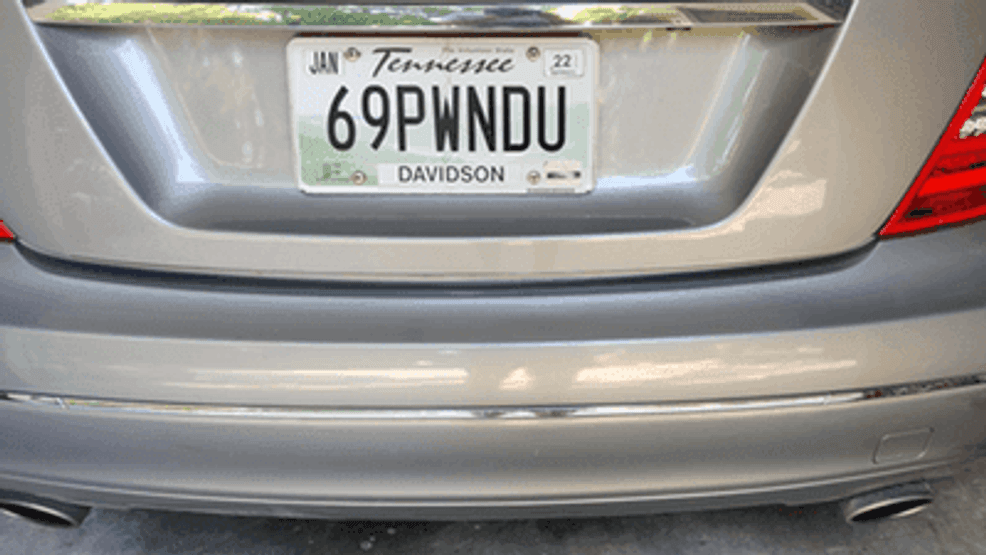Tennessee Supreme Court rules against woman who had license plate for 10 years

NASHVILLE, Tenn. (WZTV) — The Tennessee Supreme Court has issued an opinion stating vanity license plates in the state are not protected under the First Amendment.
The court issued an opinion on Wednesday in the case of Leah Gilliam v. Commissioner of the Tennessee Department of Revenue et al in which Gilliam challenged the revocation of her personalized license plate.
The plate, which read 69PWNDU, was used by Gilliam for over 10 years, but the state wound up revoking it, deeming the plate offensive. Gilliam issued the lawsuit, claiming the personalized license plate program in the state is unconstitutional since it violates the First Amendment.
RELATED: Nashville woman sues state officials over license plate deemed 'offensive' 10 years later
The state argued the prohibition of viewpoint discrimination as protected under the First Amendment does not apply to alphanumeric combinations on personalized license plates because they are government free speech and not private speech. The Tennessee Supreme Court took up the case and upheld the view personalized license plates are government speech and not private speech.
The opinion issued by the court means the state can revoke plates based on the content of a message.
Get reports like this and all the news of the day in Middle Tennessee delivered to your inbox each morning with the FOX 17 News Daily Newsletter.
















